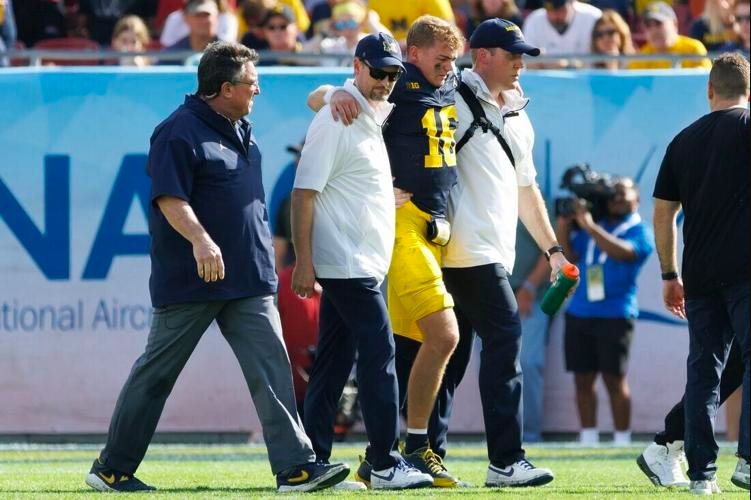Michigan quarterback Davis Warren has suffered a torn ACL, an injury that brings both a personal and team-wide setback as the Wolverines progress through their season. A torn ACL, one of the most serious injuries an athlete can face, typically requires a lengthy recovery process, often sidelining players for up to a year depending on the severity of the tear and the success of surgical and rehabilitative measures. Warren, known for his resilience and determination, will now face the challenge of not only recovering physically but also maintaining his mental toughness as he works through what is often an arduous and frustrating rehabilitation process. The timing of this injury is particularly significant for both Warren and Michigan football, as the Wolverines are in the midst of an intense campaign in the Big Ten, with aspirations for a conference championship and potentially a spot in the College Football Playoff. Warren’s role as a backup quarterback has been vital to the team’s depth chart, as his presence on the roster ensured Michigan had a reliable option in the event of an injury to starting quarterback J.J. McCarthy. Beyond his physical skills, Warren’s leadership and knowledge of the game have made him a key figure in the locker room, and his absence will undoubtedly be felt by teammates and coaches alike. While Michigan has depth at the quarterback position, losing Warren underscores the fragile nature of team dynamics, particularly in a sport as physically demanding as football. His injury also serves as a stark reminder of the inherent risks of the game, where even one wrong step or awkward movement can lead to significant consequences. For Warren, this injury marks another chapter in a football journey already defined by challenges and perseverance, as he previously overcame leukemia during his high school years to earn a spot on Michigan’s roster. This history of overcoming adversity will likely serve as a source of inspiration for Warren and those around him as he embarks on his recovery. Michigan’s coaching staff, led by Jim Harbaugh, will now need to reassess their quarterback depth and adjust their strategy to account for Warren’s absence, possibly elevating another backup into a more prominent role or tweaking offensive schemes to mitigate the potential impact of reduced depth. Fans, too, will be watching closely, not only to see how the team adapts but also to support Warren through his recovery. ACL injuries, while serious, are no longer the career-ending diagnoses they once were, thanks to advances in medical technology and sports medicine, and many athletes return to the field stronger and more determined than ever. For Warren, the road ahead will undoubtedly be difficult, filled with countless hours of physical therapy, strength training, and mental preparation, but his track record of resilience suggests he is well-equipped to handle the challenges that lie ahead. As the Wolverines continue their season, the loss of Warren will serve as a poignant reminder of the sacrifices and risks inherent in the pursuit of excellence in collegiate athletics, and his recovery will likely become a rallying point for his teammates, fans, and the broader Michigan football community.
